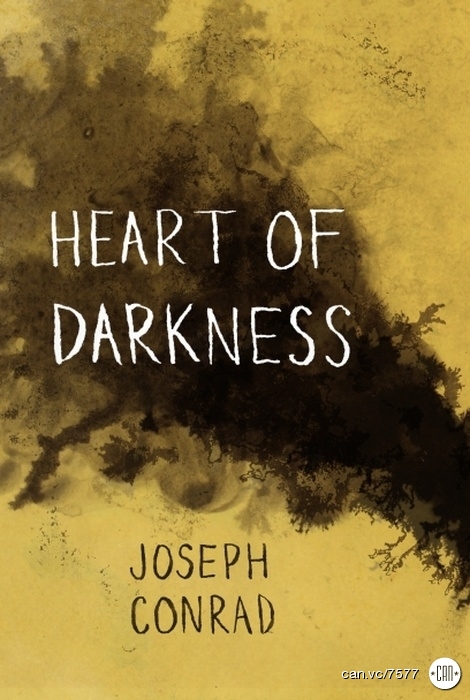Book #63
Heart of Darkness by Joseph Conrad
Dark allegory describes Marlow’s journey up the Congo River and his meeting with, and fascination by, Mr. Kurtz, a mysterious personage who dominates the unruly inhabitants of the region.
Reading A Hippo Banquet led me into this one perfectly, and gave me the only thing lacking from Kingsley's accounts: human nature and interaction.
The framed narrative worked wonders for me. The narrator beginning the story gazing down the Thames, imagining the hope and promise far-off lands can offer, was exactly the way I felt after Kingsley's colourful and utopian descriptions of Africa. Once he has heard Marlow's story, he feels as though he is staring straight into the heart of darkness. The narrator is beside us in the audience, listening to the story, trying to understand its meaning, and ultimately becoming convinced of the horrors spun by the teller.
Marlow's tale is filled with moralistic warnings; the main one being that even the most upstanding citizen can be consumed by madness, and descend into brutal behaviour often painted as civilised. The barbarism here wasn't from the 'uncivilised savages', but from the apparent white pillars of the community, many of whom (including Marlow) are only in Africa in order to experience something, or advance their careers. His commentary on imperialism parallels this, and although interesting, is difficult to comprehend into a defining conclusive statement on Conrad's true opinion.
The prose perfectly captures a man telling a story; he struggles, he stops, he diverts. Despite this, all the workings of excellent literature are there. He throws symbols at you mercilessly, and the only way to enjoy the book is to interpret these to the best of your ability. Each device weaves together to create the gloom of being walled in, of being alone, and of slowly losing your mind.
An utterly uncomfortable read, it's an important one in understanding the dangers of power, the importance of conscience, and the overwhelming complexity of human nature.

